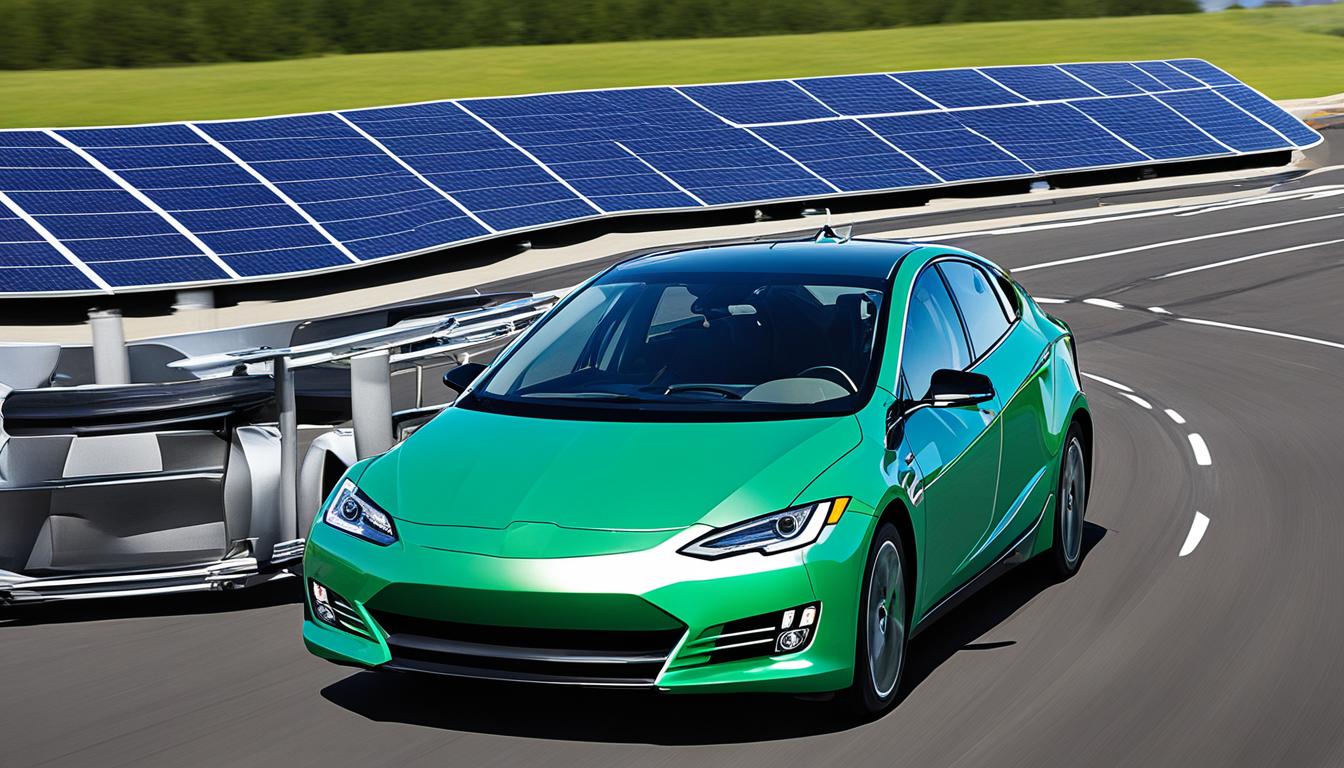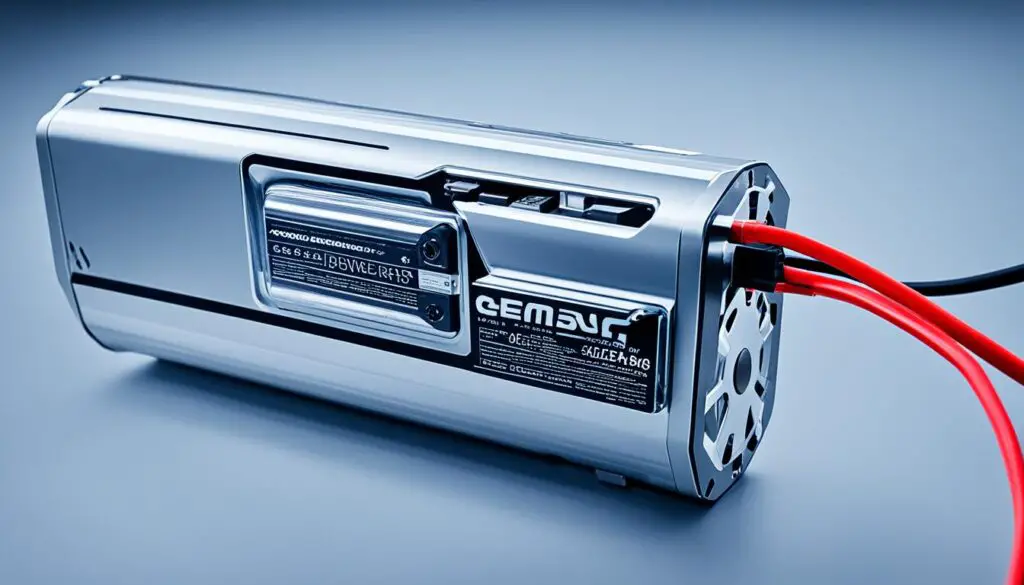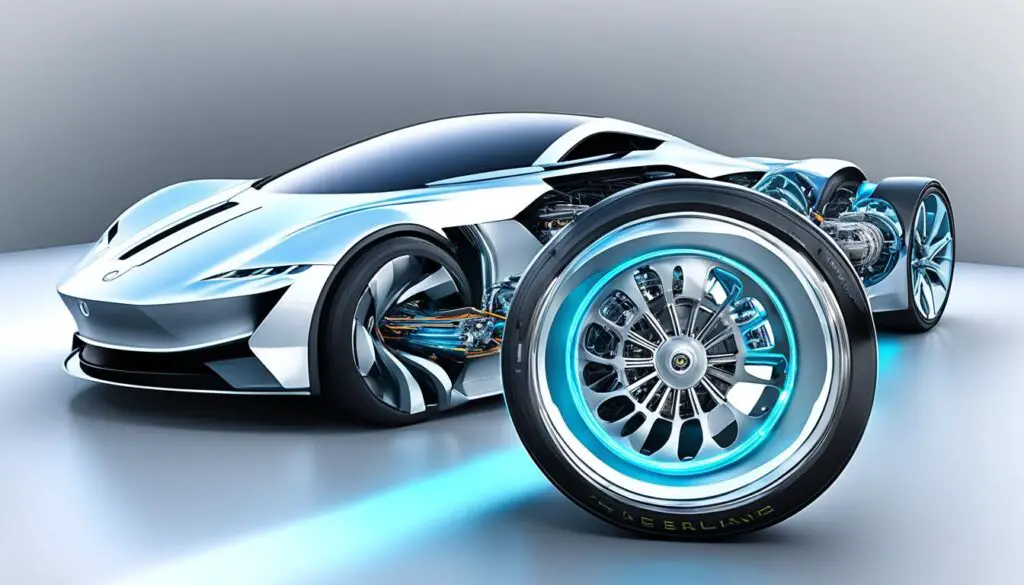
Breaking New Ground: The Latest Hybrid Vehicle Advancements
Hybrid vehicle technology is constantly evolving, with new advancements being made to improve their performance, efficiency, and eco-friendliness. From improved battery technology to innovative powertrain systems, these advancements are paving the way for a greener future of transportation. In this article, I will explore the forefront of hybrid vehicle advancements and how they are revolutionizing the automotive industry.
Key Takeaways:
- Advancements in battery technology have significantly improved the performance and range of hybrid vehicles.
- Innovative powertrain systems, such as series hybrids and parallel hybrids, offer advantages in fuel efficiency, reduced emissions, and increased power output.
- Regenerative braking technology captures and stores energy that is typically lost during braking, improving the overall efficiency of hybrid vehicles.
- The future of hybrid vehicles looks promising, with ongoing advancements in technology and a growing focus on sustainability.
- Hybrid vehicle technology will continue to evolve, making them more accessible, efficient, and eco-friendly for consumers.
Advancements in Battery Technology
One of the key areas of advancement in hybrid vehicles is battery technology. The development of more efficient and high-capacity batteries has significantly improved the performance and range of hybrid vehicles. Lithium-ion batteries, for example, are now widely used in hybrid vehicles due to their high energy density and long lifespan.
Additionally, advancements in battery management systems have made it possible to optimize the charging and discharging of hybrid vehicle batteries, further enhancing their efficiency and longevity.
These advancements in battery technology have revolutionized the hybrid vehicle industry, providing drivers with longer driving ranges, improved fuel efficiency, and reduced emissions. The integration of advanced battery systems has enabled hybrid vehicles to deliver seamless transitions between electric and combustion power, maximizing both performance and sustainability.
The Power of Lithium-ion Batteries
Lithium-ion batteries have become a game-changer in the hybrid vehicle industry. Their high energy density allows for the storage of more energy in a smaller, lighter battery pack. This increased energy storage capacity translates to extended driving ranges and improved efficiency.
Furthermore, lithium-ion batteries have a longer lifespan compared to traditional lead-acid batteries. Their durability and ability to endure numerous charge and discharge cycles make them ideal for hybrid vehicle applications.
“The development of more efficient and high-capacity batteries has significantly improved the performance and range of hybrid vehicles.”
– Dr. Michael Anderson, Battery Technology Expert
Another significant advantage of lithium-ion batteries is their ability to recharge quickly. This enables hybrid vehicle owners to spend less time waiting for their batteries to charge, making them a more convenient option for everyday use.
Optimizing Battery Management Systems
Battery management systems play a crucial role in maximizing the performance and longevity of hybrid vehicle batteries. These systems monitor various parameters such as temperature, voltage, and state of charge to ensure optimal operation and safety.
Advancements in battery management systems have allowed for more sophisticated control algorithms, enabling precise charging and discharging of the battery. This not only improves the overall efficiency of the battery but also extends its lifespan by preventing overcharging or deep discharging.
Additionally, these systems provide real-time data on battery health and performance, allowing drivers to make informed decisions regarding their driving habits and charging patterns. This helps maximize the lifespan of the battery and ensures its long-term reliability.
Overall, advancements in battery technology and management systems have transformed hybrid vehicles into powerful, eco-friendly alternatives to conventional gasoline-powered cars. These advancements continue to drive the development of electric vehicle batteries and pave the way for a greener future of transportation.

Innovative Powertrain Systems
Hybrid vehicles are at the forefront of automotive innovation, and one area that has seen significant advancements is the development of innovative powertrain systems. These systems play a crucial role in maximizing the efficiency and performance of hybrid vehicles, while also reducing their environmental impact.
Hybrid vehicles now offer a wide range of powertrain configurations, each with its own unique advantages. Some of the most common powertrain systems found in hybrid vehicles include:
- Series hybrids: In a series hybrid, the internal combustion engine is used only to generate electricity, which is then used to power the electric motor that drives the vehicle. This setup allows for greater fuel efficiency and reduced emissions, as the engine can run at its most efficient operating point.
- Parallel hybrids: Parallel hybrids use both the internal combustion engine and the electric motor to directly power the vehicle. This setup provides a good balance between fuel efficiency and power output. The vehicle can operate on electric power alone, the engine alone, or a combination of both, depending on the driving conditions.
- Plug-in hybrids: Plug-in hybrids, also known as PHEVs, have the ability to be charged from an external power source and can run exclusively on electric power for a certain range. When the battery is depleted, the vehicle switches to hybrid mode and operates like a parallel hybrid. This allows for extended electric-only driving and reduced fuel consumption.
Each of these powertrain systems has its own unique benefits, allowing drivers to choose the one that best suits their needs and driving preferences. Whether it’s maximizing fuel efficiency, reducing emissions, or enjoying the convenience of electric-only driving, hybrid vehicles offer a versatile range of options.
In addition to different powertrain configurations, advancements in regenerative braking technology have also contributed to the efficiency of hybrid vehicles. Regenerative braking allows the vehicle to capture and store energy that is typically lost during braking, which can then be used to power the electric motor or recharge the battery. This technology helps to further improve the overall fuel efficiency of hybrid vehicles and reduce their carbon footprint.
The Future of Hybrid Vehicle Powertrains
As hybrid vehicle technology continues to advance, we can expect further improvements in powertrain systems. Automakers are investing heavily in research and development to enhance the efficiency and performance of hybrid vehicles. One area of focus is the integration of advanced control systems that optimize the interactions between the internal combustion engine, electric motor, and battery.
Furthermore, advancements in material science and manufacturing techniques are enabling the development of lighter and more compact powertrain components. These advancements contribute to improved efficiency and overall vehicle performance. Alongside these advancements, the automotive industry is also exploring the potential of new energy sources and alternative fuels, such as hydrogen fuel cells, to power hybrid vehicles.
The future of hybrid vehicle powertrains is indeed promising. With continuous technological advancements, we can anticipate even greater fuel efficiency, reduced emissions, and enhanced performance in the years to come. The evolution of powertrain systems will play a pivotal role in shaping the future of transportation, offering consumers a greener and more sustainable option for their daily commutes.

The Future of Hybrid Vehicles
The future of hybrid vehicles is promising as technology continues to advance and sustainability becomes a top priority. Automakers are heavily investing in the development of hybrid and electric vehicles, aiming to reduce our reliance on fossil fuels and minimize the environmental impact of transportation. With advancements in battery technology, powertrain systems, and overall vehicle design, hybrid vehicles are becoming increasingly accessible, efficient, and eco-friendly for consumers.
Advancements in battery technology are a key driver in the evolution of hybrid vehicles. With the development of more efficient and high-capacity batteries, hybrid vehicles now have improved performance and longer range. Lithium-ion batteries, known for their high energy density and long lifespan, are widely used in hybrid vehicles. Additionally, advancements in battery management systems allow for optimized charging and discharging, enhancing efficiency and longevity.
Another area of advancement in hybrid vehicles is innovative powertrain systems. Various powertrain configurations, such as series hybrids, parallel hybrids, and plug-in hybrids, offer unique advantages like improved fuel efficiency, reduced emissions, and increased power output. Moreover, regenerative braking technology enables the capture and storage of energy that is typically lost during braking, further enhancing overall efficiency.
As hybrid vehicle technology continues to progress, we can expect to see a more widespread adoption and integration of these vehicles into our everyday lives. The future holds the promise of hybrid vehicles taking a prominent role in achieving sustainable transportation. With ongoing advancements, hybrid vehicles will play a vital role in creating a greener and more eco-conscious future.
FAQ
What are some of the key areas of advancement in hybrid vehicles?
Some of the key areas of advancement in hybrid vehicles include battery technology and powertrain systems.
How has battery technology improved in hybrid vehicles?
Battery technology in hybrid vehicles has improved with the development of more efficient and high-capacity lithium-ion batteries, which have increased performance and range. Advancements in battery management systems have also optimized charging and discharging, enhancing efficiency and longevity.
What types of powertrain systems are available in hybrid vehicles?
Hybrid vehicles feature a variety of powertrain configurations, including series hybrids, parallel hybrids, and plug-in hybrids. Each type offers its own advantages, such as improved fuel efficiency, reduced emissions, and increased power output.
How does regenerative braking technology improve hybrid vehicle efficiency?
Regenerative braking technology allows hybrid vehicles to capture and store energy that is typically lost during braking. This energy can then be used to power the vehicle, reducing reliance on the internal combustion engine and enhancing overall efficiency.
What does the future hold for hybrid vehicles?
The future of hybrid vehicles is promising, with continued advancements in technology and a focus on sustainability. Automakers are investing in hybrid and electric vehicles to reduce dependence on fossil fuels and minimize environmental impact. Advancements in battery technology, powertrain systems, and overall vehicle design will make hybrid vehicles more accessible, efficient, and eco-friendly for consumers.
